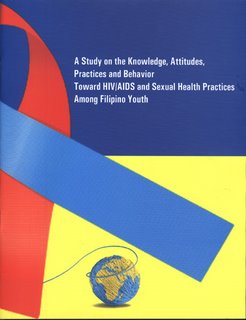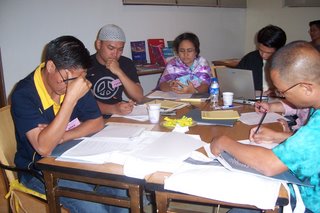
HAIN manages and coordinates the project "Strengthening the Monitoring and Evaluation (M&E) System of the Philippine HIV/AIDS Response.” The Project started in January 2006 and will be implemented for one year in partnership with Health Development Initiatives Institute (HDII)) and is supported by the Philippine National AIDS Council (PNAC) and the UNAIDS. The Project supplements and complements earlier efforts undertaken to put in place a comprehensive national Monitoring and Evaluation System for HIV/AIDS. [Photo: M&E Workshop in Tagaytay, March 16-17, 2006]
The M&E Project aims to achieve the following objectives:
1. Produce an M&E Plan for NGOs and pilot the NGO M&E plan in three sites
2. Introduce and install Country Response Information System (CRIS) in 10 M&E centers at the local level, three subnational and two national pilot sites
3. Create a Monitoring & Evaluation Harmonization and Implementation Plan in 10 local level sites.
4. Prepare a Resource Monitoring Plan and incorporate the plan into the overall M&E System
5. Set-up an integrated Research Plan for STI/HIV/AIDS
6. Set-up Quality Control measures for M&E
Upcoming activities:
HAIN will be conducting an M&E capability building training entitled “Data Management Training” for NGOs working on HIV and AIDS. Four trainings are set in July, August, and September 2006. Please contact HAIN for details and application.



